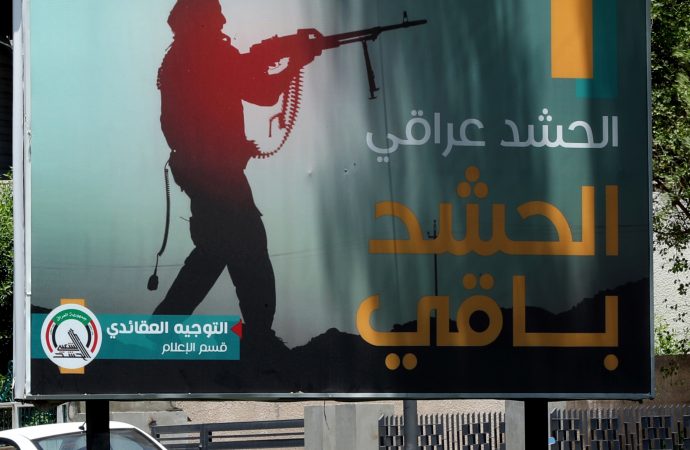Within just the last few days, two senior Catholic prelates from Iraq have referred to plans for Pope Francis to visit the country next year as, essentially, a done deal.
Of course, this is the Middle East we’re talking about, where the best-laid plans go to die. St. John Paul II had every intention of visiting the Iraqi city of Ur as part of his pilgrimage to the origins of the faith for the Great Jubilee of 2000, but security concerns derailed those hopes. A widening conflict between the U.S. and Iran is merely one scenario that might have a similar impact on Francis’s agenda this time around.
If the pontiff does end up going, however, it may be Francis’s best shot at the title of “most important papal trip of all time.”
Last week in Rome, Cardinal Raphael Louis Sako of Baghdad, Patriarch of the Chaldean Catholic Church, told a Rome conference on anti-Christian persecution that he hopes Francis will use the occasion to sign an agreement with leaders of Shi’a Islam similar to the document he issued jointly with the Grand Imam of Al-Azhar, the leading institution in the Sunni world, when he was in the United Arab Emirates in February.
On Wednesday, Chaldean Archbishop Alnaufali Habib Jajou of Basra in southern Iraq told the Asia News agency that the pope’s trip could represent a moment of “rebirth” for the Christian community. (Last year all the church’s extra-liturgical activities in Basra had to be suspended due to violence generated by anti-corruption protests.)
The drumbeat suggests just how keenly anticipated the pope’s presence in Iraq is, and how high the stakes would be.
Since St. John XXIII first set foot outside Rome in 1962 by taking a train to Loretto, ending more than a century of popes considering themselves “prisoners of Rome,” pontiffs have made a grand total of 168 overseas journeys, by now having touched down in virtually every nation on earth at one point or another.
Just as every presidential trip can’t be Nixon in China, it’s probably no surprise that only a handful of these papal outings seem to have passed the test of time, leaving a permanent mark on the popular imagination - Paul VI’s 1964 trip to the Holy Land, for instance, featuring his historic meeting with Orthodox Patriarch Athenagoras in Jerusalem, or John Paul II’s first homecoming to Poland in 1979, which set the dominoes tumbling that would eventually bring down the Soviet empire.
For sheer drama, it would be hard to beat Benedict XVI’s 2006 visit to Turkey, which took place just a couple of months after his infamous Regensburg speech set off a firestorm of protest across the Muslim world and stirred fears of a global “clash of civilizations” between Christianity and Islam.
In terms of iconography, John Paul’s 2000 visit to the Holy Land, with its indelible image of this Polish pope who grew up in the shadow of the Holocaust standing alone at the Western Wall and leaving behind a handwritten note apologizing for centuries of Christian anti-Semitism, likely remains unsurpassed.
To date, Francis has already made several memorable outings of his own, though few seem quite in that league.
There was his 2013 trip to Brazil, which featured the “Who am I to judge?” soundbite; a February 2016 trip to Mexico, which included a prayerful stop at the U.S./Mexico border and the pontiff questioning then-candidate Donald Trump’s credentials as a Christian; a 2016 day trip to the Greek island of Lesbos, which ended with the pontiff bringing a dozen Syrian refugees with him back to Rome aboard the papal plane; and his brief but dramatic outing earlier this year to the UAE, offering a powerful counter-narrative to extremism and Christian-Muslim tension.
It’s possible, however, a trip to Iraq could tower above them all in terms of the images it would create and the impact it might have.
This would be the first time a pope has ever visited Iraq, and in the present context, no other outing by any major world leader likely would be as scrutinized, dissected and analyzed. In effect, it would afford Francis the opportunity to be a game-changer, rolling out his vision for reconciliation and a “culture of encounter” in one of the most contested pieces of real estate on the planet. If he succeeds, he could embolden moderates all across the region.
Beyond its political, diplomatic and strategic significance, a papal visit would have an almost incalculable impact on the Christian minority in Iraq.
Christianity there is presently on life support after centuries of second-class citizenship and decades of attrition due to economic and political upheaval, on top of the more recent genocidal carnage inflicted by ISIS. The presence of a pope would literally mean the world to these people - as in, the world hasn’t forgotten them and won’t abandon them.
One can imagine that if Francis goes to Iraq and Christianity does somehow endure, decades from now the world will remember the moment a pontiff stood on Iraqi soil as a pivotal turning point.
Of course, popes don’t make their travel decisions based on grubby considerations such as cracking a “most important trip” list. The rest of us, however, sometimes can’t help thinking in such terms - and, in this case, dreaming of what might be.

